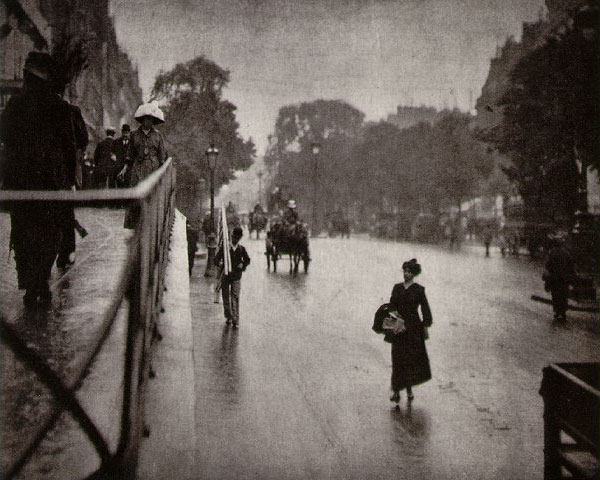Paris Talks Revisited: Means of Existence
One of the most important principles of the Teachings of Baha’u’llah is: The right of every human being to the daily bread whereby they exist, or the equalization of the means of livelihood.
A talk given in Paris on the sixth principle of the Baha’í teachings that began with such a relatively simple principle gave way for ‘Abdu’l-Bahá to demonstrate yet again the interconnectedness of the various qualities that must adorn a society striving to translate into action the Word of God. As seemingly effortlessly as always, the Master beautifully weaved in concepts such as unity, justice, equality and equity. And, of course, it makes perfect, beautiful sense: for all to have the right to a livelihood, the rules of society need to be arranged in such a way to bring about justice, but not equality.
What a shock that must have been for His audience to hear that equality is a chimera, a fantasy many of them might have been pursuing. ‘Abdu’l-Bahá was after all speaking in a city where, a little over a century earlier, royalty and nobility were both overturned by a population fed up with the lack of justice inherent to their governing system in an event that came to be known as the French Revolution. The most spectacular event associated with this overturn is of course the storming of the Bastille prison on 14 July 1789 which to this day defines French culture (July 14 is France’s National Day)1. And, while suffrage was not going to be extended to French women for another three decades, Paris was already playing a leading role in women’s suffrage and in defining modern-day feminism2.
Almost as striking was the unusual yet very interesting imagery used in reference to the rich, not as the beneficiary of a gift, but rather as burdened by what many envy. I cannot help but wonder at how the audience might have reacted to the concept of riches as a ball and chain wearing someone down, especially since at the turn of the 20th century France was finally catching up with the Industrial Revolution which had already raised the material standards of living of hundreds of thousands across Europe, America and Asia3.
I could not help but wonder why the means of existence is one of the most important principles of the Teachings of Bahá’u’lláh. As unity is at the centre of the Teachings, perhaps ensuring that everyone has a means of existence creates the conditions necessary for unity. After all, people who are overburdened with riches are veiled, in that the riches that are meant to bring them comfort can unfortunately far too easily become a veil between them and their Beloved. Similarly, “miserable, demoralizing and degrading poverty” becomes a burden that keeps the poor from attaining their true spiritual potential. There is also the fact that poverty at the level of starvation is “a sure sign of tyranny somewhere”, which means injustice, in turn, undermines unity.
The only equality ‘Abdu’l-Bahá deems worthy is that of equal justice, which is “the only way in which the deplorable superfluidity of great wealth and miserable, demoralizing, degrading poverty can be abolished. For not until this is done will the Law of God be obeyed.”
Sources:
1 – http://www.tlfq.ulaval.ca/axl/francophonie/HIST_FR_s8_Revolution1789.htm
2 – http://womhist.alexanderstreet.com/awrm/intro.htm
3 – http://www.erih.net/industrial-history/france.html
Photo by Alfred Stieglitz entitled “Snapshot, Paris 1911”, from www.all-art.org



the last paragraph is a perfect summary..
more than ever before we need to hear the speeches of the Master being proclaimed to audiences throughout the world..